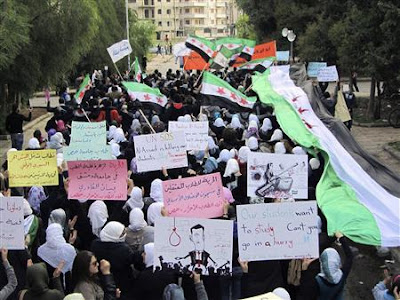November 3, 2011 3:00 AM
By David Morgan
(CBS News)
Advocates for reducing U.S. corporate tax rates argue that lower corporate rates charged in other countries impede American competitiveness. Yet a new study finds that many of the nation's top companies are already paying less in U.S. taxes on their pretax profits than they do overseas.
In a study comprising more than half of the Fortune 500 list of the largest U.S. corporations, a quarter of those examined paid little or nothing in federal income taxes during the 2008-2010 period, despite registering profits in all three years.
Of those 280 companies, 78 corporations had at least one year during which their U.S. federal tax was zero or less, and many had more than one year paying no tax, despite recording profits; many of these companies also received tax rebates. In 2009 alone, 49 companies earned combined profits of $78.6 billion, yet paid no taxes - and collected tax rebates totaling $10.8 billion.
The study also disputes claims that the U.S. charges excessive corporate tax rates compared to other countries: Two-thirds of the corporations studied which earned significant foreign AND U.S. profits over the same three-year period paid higher tax rates to foreign governments on their foreign profits than they paid to the U.S. government on their domestic profits.
The study, conducted by Citizens for Tax Justice and the Institute on Taxation & Economic Policy and published Thursday, examined the tax payments of 280 companies from the Fortune 500 - those that recorded profits in 2008, 2009 and 2010. (Companies that registered a loss for at least one year were not included in the study.) These companies reported total pre-tax U.S. profits of $1.4 trillion, and many of the companies examined did pay close to the official corporate tax rate of 35 percent.
But because of tax breaks and loopholes, many paid little or nothing. In the aggregate, these 280 companies actually paid about half the official corporate tax rate - 18.5 percent over the 2008-10 period, and slightly less (17.3 percent) over the last two years.
In all, the tax breaks that reduced these companies' payments to the Treasury Department cost the United States more than $200 billion over three years.
"Corporate Taxpayers & Corporate Tax Dodgers 2008-10"
The analyses are based on financial data from SEC filings.
The variation in tax payments did not correspond with profits: In some cases comparable companies with comparable U.S. pretax profits made wildly different tax payments. General Dynamics, on 3-year profits of $9.147 billion, paid an effective tax rate of 27 percent, while Boeing, on profits of $9.735 billion, paid -1.8 percent tax.
According to the report:
A quarter of the companies (71) paid more than 30 percent (averaging 32.3%) in corporate taxes over the three years.
Another quarter (67) paid effective three-year tax rates of less than 10 percent, with the average effective tax rate being zero. Thirty of these companies paid LESS than zero.
The following 30 profitable corporations paid no U.S. income tax from 2008-2010:
Company / 2008-10 Profits ($ millions) / 2008-10 Taxes ($ millions) / Effective 2008-10 Rate
Pepco Holdings $ 882 / $ -508 / -57.6%
General Electric 10,460 / -4,737 / -45.3%
Paccar 365 / -112 / -30.5%
PG&E Corp. 4,855 / -1,027 / -21.2%
Computer Sciences 1,666 / -305 / -18.3%
NiSource 1,385 / -227 / -16.4%
CenterPoint Energy 1,931 / -284 / -14.7%
Tenet Healthcare 415 / -48 / -11.6%
Atmos Energy 897 / -104 / -11.6%
Integrys Energy Group 818 / -92 / -11.3%
American Electric Power 5,899 / -545 / -9.2%
Con-way 286 / -26 / -9.1%
Ryder System 627 / -46 / -7.3%
Baxter International 926 / -66 / -7.1%
Wisconsin Energy 1,725 / -85 / -4.9%
Duke Energy 5,475 / -216 / -3.9%
DuPont 2,124 / -72 / -3.4%
Consolidated Edison 4,263 / -127 / -3.0%
Verizon Communications 32,518 / -951 / -2.9%
Interpublic Group 571 / -15 / -2.6%
CMS Energy 1,292 / -29 / -2.2%
NextEra Energy 6,403 / -139 / -2.2%
Navistar International 896 / -18 / -2.0%
Boeing 9,735 / -178 / -1.8%
Wells Fargo 49,370 / -681 / -1.4%
El Paso 4,105 / -41 / -1.0%
Mattel 1,020 / -9 / -0.9%
Honeywell International 4,903 / -34 / -0.7%
DTE Energy 2,551 / -17 / -0.7%
Corning 1,977 / -4 / -0.2%
TOTAL: On $160.341 billion in profits, they paid $ -10.742 billion in taxes, for an average effective tax rate of -6.7%.
In some cases corporations may realize tax benefits for past years through rebates, or may win disputes with the IRS for previous tax periods, thereby accruing tax benefits not recorded in earlier financial reports.
Of the companies receiving what the report terms "tax subsidies" - the difference between what they would have paid for their profits at the 35 percent rate and what they actually paid during the 2008-10 period - the largest subsidies went to Wells Fargo ($17.960 billion); AT&T ($14.491 billion); Verizon ($12.332 billion); General Electric ($8.398 billion); IBM ($8.265 billion); ExxonMobil ($4.096 billion); Boeing ($3.585 billion); PNC Financial Services ($3.354 billion); Goldman Sachs ($3.178 billion); and Procter & Gamble ($3.158 billion).
More than half (56 percent) of tax subsidies were gained by four industries: Financial; utilities; telecommunications; and oil, gas & pipelines.
There is also a wide range of tax payments between industry sectors.
While retailers and health care paid an average effective tax rate of 30 percent or more, oil, gas & pipeline companies averaged 15.7 percent. Financial companies averaged 15.5 percent. Telecom companies averaged 8.2 percent. Gas and electric utilities paid an average effective tax rate of 3.7 percent. The lowest average rate was paid by the industrial machine sector, of -13.5 percent.
There was wide variance within each sector: For example, pharmaceutical company Amgen paid 28 percent, while its competitor Baxter paid -7.1 percent. United Parcel Service paid 24.1 percent, while FedEx paid 0.9 percent.
Elements of the U.S. tax code that have allowed companies to defer or reduce their tax burdens include accelerated depreciation of capital investments; research and experimentation tax credits; non-cash goodwill impairments; stock options; tax breaks awarded to specific industries; and offshore tax shelters.
The report's authors (Robert S. McIntyre and Rebecca J. Wilkins of Citizens for Tax Justice, and Matthew Gardner and Richard Phillips for The Institute on Taxation and Economic Policy) write that lawmakers should enact corporate tax reform, focusing on what are officially known as "corporate tax expenditures"; reinstate a strong corporate Alternative Minimum Tax; revise how stock options are treated; adopt restrictions on abusive tax sheltering; reform how multi-national companies assign profits between foreign and domestic divisions; and repeal the rule allowing U.S. corporations to "defer" their U.S. taxes on their offshore profits, to end the incentive for shifting profits overseas.
"Unfortunately," the report states, "corporate tax legislation now being promoted by many in Congress seems stuck on the idea that as a group, corporations are now either paying the perfect amount in federal income taxes or are paying too much. ... Meanwhile, GOP candidates for president are all promoting huge cuts in the corporate tax or, in several cases, even elimination of the corporate income tax entirely."
The report's authors call on elected officials to stop "kowtowing to the loophole lobbyists" and enact corporate tax reform that benefits the majority of Americans.
 Cluster bombs release smaller "bomblets" over a wide area
Cluster bombs release smaller "bomblets" over a wide area 












